halloween 2007 script pdf
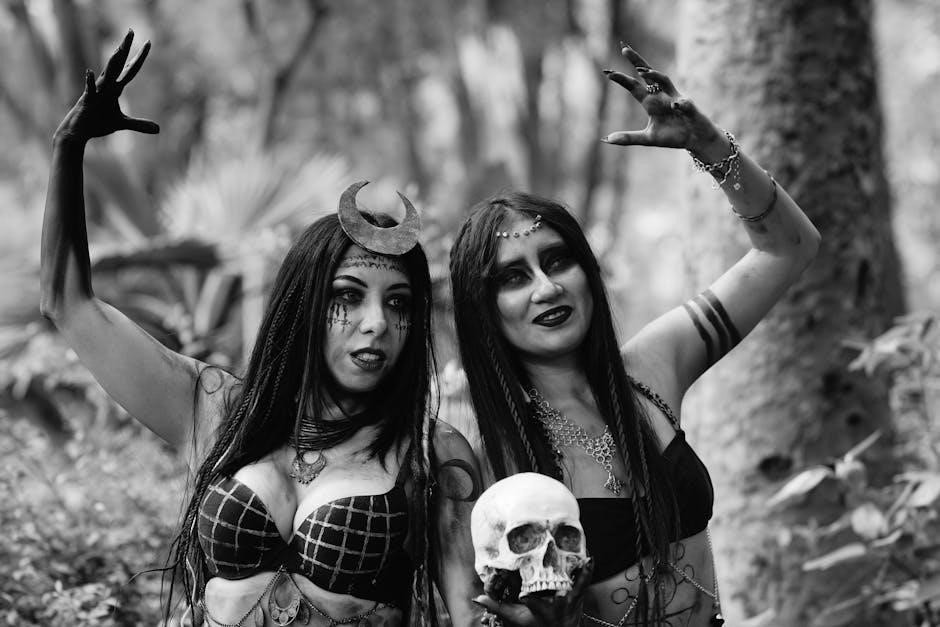
The Halloween 2007 script, written by Rob Zombie, is available as a PDF. This early draft, leaked in 2006, caused controversy among fans and critics.
It explores Michael Myers’ backstory, offering a deeper look into his motivations. The script is 127 pages long and can be found on Scripts.com.
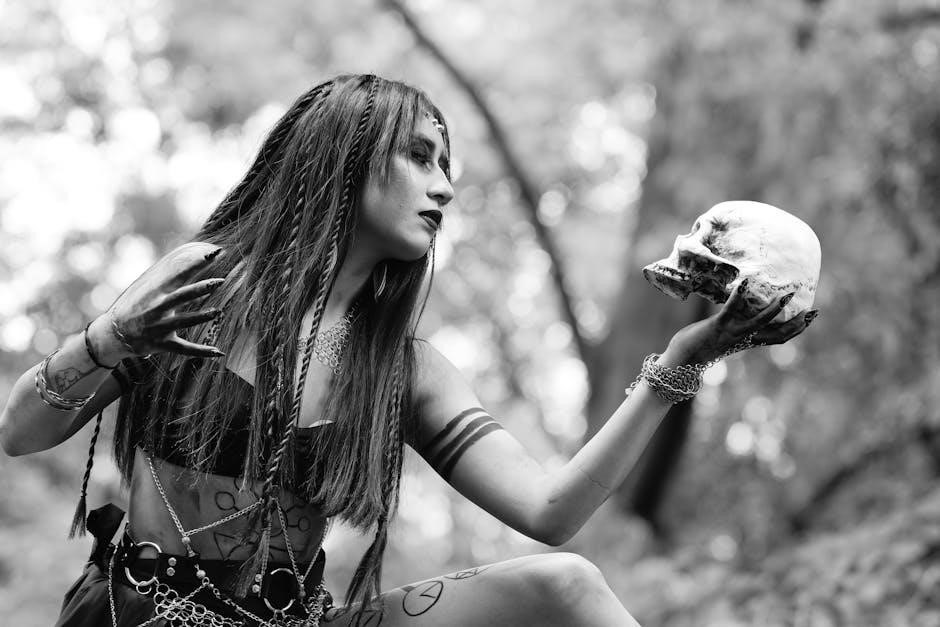
Background of the Film
The 2007 Halloween is a remake of John Carpenter’s 1978 horror classic. Rob Zombie directed and wrote the script, offering a fresh perspective on the iconic slasher.
Zombie’s vision expanded Michael Myers’ backstory, exploring his psychological motivations. The film aimed to humanize the killer, adding depth to the original’s terrifying simplicity.
1.1 The Original 1978 Halloween Film
John Carpenter’s 1978 Halloween revolutionized horror cinema. Introducing Michael Myers, a masked killer, it established the slasher genre. The film’s minimalist score and tense atmosphere created fear without excessive gore. Laurie Strode, played by Jamie Lee Curtis, became a horror icon. The story follows Myers, who escapes a psychiatric hospital and stalks Laurie and her friends. Its success led to sequels and influenced countless horror films. The original’s simplicity and suspense remain unmatched, making it a timeless classic.
1.2 Rob Zombie’s Vision for the Remake
Rob Zombie aimed to reimagine Halloween by delving into Michael Myers’ backstory. His 2007 script explored Myers’ troubled childhood, offering a humanized perspective. Zombie focused on the psychological aspects, depicting Myers’ descent into violence. The film added depth to the character, explaining his motivations. This approach differed from the original, which portrayed Myers as an emotionless killer. Zombie’s vision sparked controversy but provided a fresh take, blending horror with a dramatic narrative;
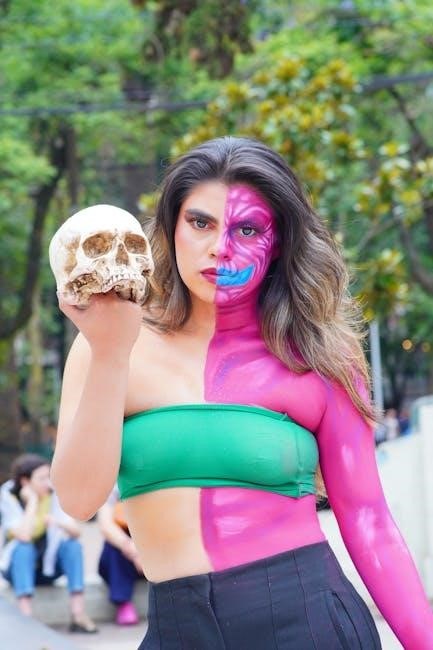
The Script Itself
The Halloween 2007 script, written by Rob Zombie, offers a detailed backstory for Michael Myers and explores his psychological transformation. It includes key scenes and dialogue.
2.1 Early Draft and Leaked Controversy
The early draft of the Halloween 2007 script, written by Rob Zombie, was leaked in 2006, sparking controversy among fans and critics. The leaked version revealed a darker, more graphic portrayal of Michael Myers’ backstory, including his childhood trauma and psychological decline. This draft also included scenes that were later altered or removed in the final film. The leak generated significant buzz, with some praising Zombie’s bold vision while others criticized the deviations from the original 1978 film’s tone and simplicity.
2.2 Key Scenes and Dialogue from the Script
The Halloween 2007 script features key scenes that redefine Michael Myers’ origins. A home movie shows the Myers family, freezing on young Michael’s unsettling grin. The script includes intense dialogue, such as Laurie Strode’s desperate pleas and Dr. Loomis’ warnings about Michael’s evil nature. A pivotal scene depicts Michael’s escape after two men assault a mentally challenged resident, sparking the horror. These moments highlight Rob Zombie’s darker, more brutal interpretation, emphasizing Michael’s humanity and motivations, diverging from the original’s silent, unstoppable killer archetype.
2.3 Differences from the Original Script
Rob Zombie’s 2007 script differs significantly from John Carpenter’s 1978 original. The remake delves into Michael Myers’ backstory, exploring his troubled childhood and motivations. In the original, Michael is portrayed as an emotionless, supernatural killer, while Zombie’s version humanizes him, showing a disturbed child driven to violence. The new script introduces scenes of family dysfunction and graphic violence, altering the tone to a darker, more brutal style. This shift emphasizes psychological depth over the eerie mystery of the original, offering a fresh yet controversial take on the horror classic.
Character Development
The 2007 script explores Michael Myers’ backstory, Laurie Strode’s resilience, and Dr. Loomis’ dedication, adding depth to their roles in the horror narrative.
3.1 Michael Myers: Backstory and Motivation
The 2007 script delves into Michael Myers’ traumatic childhood, portraying his family life and psychological unraveling. His motivation stems from abandonment and abuse, shaping his silent rage.
The backstory reveals a disturbed child driven by dark impulses, with his escape from Smith’s Grove Sanitarium marking the start of his violent journey.
3.2 Laurie Strode: The Protagonist’s Journey
Laurie Strode, portrayed by Scout Taylor-Compton, is the resilient protagonist. The script explores her struggle to survive Michael’s relentless pursuit and her emotional turmoil.
Her character evolves from a typical teenager to a determined survivor, making her a symbol of strength in the face of horror and chaos.
3.3 Dr. Loomis: The Psychiatrist’s Role
Dr. Samuel Loomis, portrayed by Malcolm McDowell, is Michael Myers’ psychiatrist. The script delves into his complex relationship with Michael, showcasing his deep understanding of the killer’s psyche.
Loomis is both a voice of warning and a haunted figure, burdened by his failure to redeem Michael. His character provides depth, highlighting the tragic elements of Michael’s transformation.
Loomis’ role bridges the gap between Michael’s past and present, offering a chilling insight into the origins of the horror that unfolds.
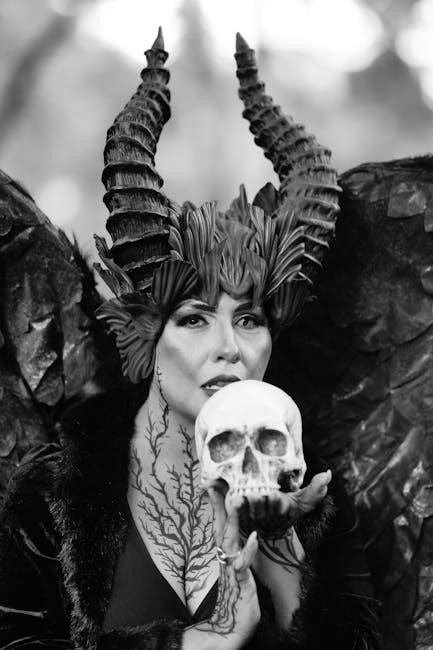
Production and Release
The 2007 Halloween film was produced by Rob Zombie, with casting choices like Malcolm McDowell as Dr. Loomis and Tyler Mane as Michael Myers.
Filming occurred in California, capturing the eerie atmosphere. The score by Tyler Bates enhanced the horror tone, contributing to the film’s unsettling vibe and release success.
4.1 Casting Choices and Filming Locations
Rob Zombie’s Halloween featured a standout cast, including Malcolm McDowell as Dr. Loomis and Tyler Mane as Michael Myers. Scout Taylor-Compton portrayed Laurie Strode, the protagonist. Filming primarily took place in California, with locations like South Pasadena and Los Angeles creating the eerie atmosphere. Zombie emphasized realistic settings to enhance the horror experience. The casting choices were deliberate, aiming to bring depth to characters while maintaining the film’s dark and gritty tone, aligning with Zombie’s vision for the remake.
4.2 The Score and Soundtrack by Tyler Bates
Tyler Bates composed the score for Rob Zombie’s Halloween, blending eerie atmospherics with pulsating rhythms. The soundtrack incorporates haunting melodies, amplifying the film’s tense and foreboding atmosphere. Bates’ work paid homage to John Carpenter’s original score while introducing fresh, unsettling tones. The music played a crucial role in heightening the horror, particularly in key scenes like Michael Myers’ escape and the climactic confrontation. The score was well-received for its ability to enhance the film’s dark and gritty tone, contributing to its lasting impact on the horror genre.
Themes and Reception
The film explores themes of evil’s origin and family dysfunction. Reception was mixed, with praise for its gritty take but criticism for excessive brutality and pacing issues.
5.1 Horror Elements and Tone
Rob Zombie’s Halloween emphasizes a gritty, raw horror tone, delving into Michael Myers’ disturbing backstory. The film’s brutal violence and dark atmosphere create a chilling experience, focusing on psychological horror over traditional scares. Zombie’s approach humanizes Michael, adding depth to his character while maintaining his terrifying presence. The score by Tyler Bates complements the ominous tone, enhancing the film’s unsettling ambiance. This approach divides fans, with some praising its intensity and others missing the original’s subtle dread;
5.2 Critical Reception and Public Reaction
Rob Zombie’s Halloween received mixed reviews from critics and fans. While some praised its raw, gritty tone and deeper exploration of Michael Myers’ backstory, others criticized its excessive violence and departure from the original’s suspenseful style. Critics noted the film’s darker approach, but some fans felt it lacked the subtle horror of Carpenter’s classic. Despite this, the film maintains a dedicated following for its unique take on the iconic character and its unflinching brutality, solidifying its place in horror cinema history.
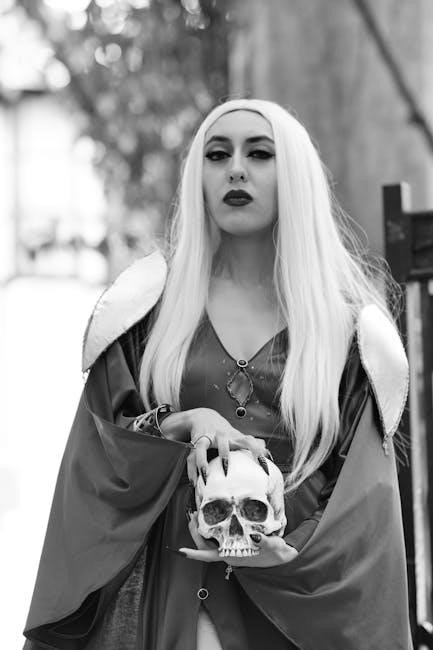
Legacy and Impact
Rob Zombie’s Halloween remake sparked debates on horror remakes, influencing modern reboots. Its gritty style and backstory exploration left a lasting mark on the genre, shaping Zombie’s reputation as a bold horror visionary.
6.1 Influence on the Horror Genre
Rob Zombie’s 2007 Halloween significantly influenced the horror genre by redefining remakes. Its darker, more psychological approach reshaped how classic horror films are reimagined, emphasizing character backstory over traditional scares. The film’s gritty realism and brutal violence set a new standard for horror remakes, encouraging filmmakers to explore deeper, more complex narratives. This approach inspired a wave of reboots, making Zombie a key figure in modern horror cinema. His vision continues to impact how horror stories are told and reinterpreted today.
6.2 Rob Zombie’s Legacy in Horror Cinema
Rob Zombie’s work on Halloween solidified his legacy as a horror visionary. His raw, unfiltered style and focus on character depth have influenced a generation of filmmakers. Zombie’s ability to blend graphic violence with emotional narratives has left an indelible mark on the genre. His contributions, including The Devil’s Rejects and House of 1000 Corpses, have made him a cult icon. Zombie’s films often explore themes of family dysfunction and societal decay, adding complexity to traditional horror tropes. His legacy continues to evolve, shaping the future of horror cinema.